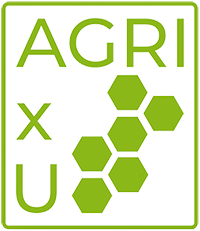Precision Farming
Precision farming involves gathering and analysing data on factors such as soil properties, weather conditions, and crop growth to make data-driven decisions that optimise the use of resources such as water, fertiliser, and pesticides.
This technology allows farmers to apply inputs more precisely and avoid overusing them, leading to reduced environmental impact and improved crop yields. Moreover, precision farming can improve overall profitability for farmers by reducing waste, improving efficiency, and minimising risk. With the increasing demand for sustainable and efficient agriculture, precision farming is becoming a more prevalent practice worldwide.
Agriculture Drones
Unmanned aerial vehicles (UAVs) or drones have emerged as an innovative tool for precision agriculture. By using drones, farmers can monitor their crops and livestock from a bird’s eye view and make data-driven decisions to improve their yields and efficiency.
Drones can quickly capture high-resolution images of the fields, which can be used to create detailed maps and identify areas that need attention. They can also be used to detect crop diseases, pests, and nutrient deficiencies, allowing farmers to take corrective action before it’s too late.
In addition, drones can help farmers optimise irrigation, manage water resources, and reduce the use of pesticides and herbicides, resulting in a more sustainable and eco-friendly agriculture.
Automated Irrigation Systems
Automated Irrigation Systems have revolutionised the way farmers irrigate their crops, making the process more efficient, cost-effective, and environmentally friendly. Automated irrigation systems use sensors, weather data, and other technologies to optimise water delivery to crops.
These systems are programmed to deliver the right amount of water, at the right time, and in the right place, taking into account factors like soil type, crop type, weather conditions, and evapotranspiration rates. This precise water management can significantly reduce water waste, improve crop yields, and even reduce the risk of diseases and pests that can thrive in overwatered fields.
Automated irrigation systems also save farmers time and money, as they require less manual labor and maintenance than traditional irrigation systems. With the growing demand for sustainable agriculture practices and the need to conserve water resources, automated irrigation systems are becoming an essential tool for modern farming.
Indoor Fish Farm
Advantages of Indoor Aquaculture: In Indoor Aquaculture the fish stock will be protected from predators, weather changes and natural calamities. At an ideal temperature level, optimum water quality and efficient feeding, it is possible to grow fish faster and can harvest anytime during the year.
